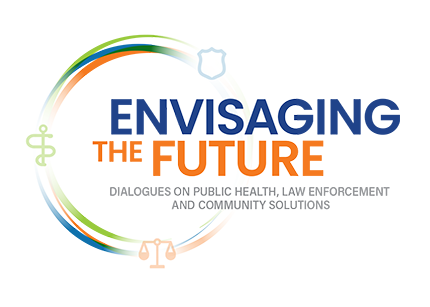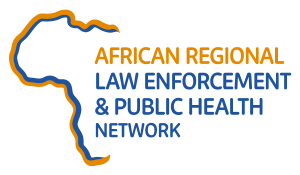
By Professor John Middleton
Honorary Professor of Public Health, Wolverhampton University; Vice President, Global Network for Academic Public Health (GNAPH); Global Law Enforcement and Public Health Fellow.
johnmiddleton@phonecoop.coop
Across the world, poverty and homelessness are increasingly being criminalized. This has implications for whole societies not just the poor and the homeless and it requires a critical reappraisal of policing, public health and governmental policy responses.
In June last year the UN Special Rapporteurs for Homelessness and Poverty produced their report to the UN General Assembly. ‘Breaking the cycle: ending the criminalization of homelessness and poverty’. (1) I attended the consultation event on behalf of GLEPHA and my evidence to the meeting was subsequently submitted to the enquiry team. (2)
The Special Rapporteurs explain why the criminalization of homelessness and poverty is not a solution. Criminalization violates human rights; and evictions, fines and detention cause further erosions of such human rights that remain. (3) Criminalization perpetuates historical legacies of discrimination and exclusion, many of these derived from colonial laws stretching back hundreds of years and reflecting the vilification of vagrancy, loitering and begging. (4) Criminalization entrenches discrimination and stigmatization. (5,6) For the public purse, criminalization is an unsuitable, inefficient and costly approach to addressing social issues. (7) It is not a rational or proportionate response to enhancing public order and safety (5-7,8).
The Special Rapporteurs set out an agenda for change and alternatives to criminalization. They call for:
- the Repeal of laws that criminalize life-sustaining activities.
- Improved judicial review, access to justice and legal aid
- Alternatives to detention
- The end of incarceration for failure to pay a fine
- The reform of law enforcement approaches
- Promoting equal access to public spaces
- Housing first, not last
- Prevention of Homelessness
- Reform of the regulation of informal economic activities
- And enhancing the role of regional and local governments
Legal and rights-based approaches
The report highlights examples of how legal and rights-based approaches can decriminalize poverty and homelessness:
- The Economic Community of Western African States, (ECOWAS) Court has ruled on Sierra Leone’s loitering laws: the ECOWAS Court ruled in favour of AdvocAid declaring Sierra Leone’s loitering laws discriminatory and in violation of fundamental human rights, including equality, non-discrimination, and freedom of movement. The Court’s decision acknowledged that these colonial-era laws disproportionately impact marginalised and low- income individuals, often resulting in arbitrary arrests based solely on subjective police assessments. The judgment not only mandates the Government of Sierra Leone to amend or repeal its loitering laws, but also establishes a vital precedent for international advocacy to abolish laws and regulations criminalizing people living in poverty or homelessness. (9).
- The African Commission on Human and Peoples’ Rights has adopted Principles on the Decriminalization of Petty Offences, (10) and the African Court on Human and Peoples’ Rights has issued an advisory opinion on vagrancy laws. (11)
- The European Court of Human Rights has found that blanket bans on begging violate the European Convention on Human Rights when begging is the only option to ensure survival. (12)
- The Inter-American Commission on Human Rights has enquired into human rights violations experienced by informal traders and waste pickers working in the street. The Commission highlighted the importance of addressing the causes of forced displacement, human trafficking, and human mobility through a commitment to cooperation and shared responsibility between States, with special attention to obtaining official statistical data. It also recognized the work of women who are family members of persons deprived of liberty, especially in the role of care and emotional responsibilities. (13)
- New Practitioners’ Guide on Decriminalization of Poverty and Status
The International Commission of Jurists, the Commonwealth Secretariat and the Global Campaign to Decriminalize Poverty and Status have published a Practitioners’ Guide to addresses the global, growing trend towards the wrongful criminalization of conduct associated with poverty, homelessness or other status.(14) The guide is advocating for a human rights-based approach to criminal law, based on general principles of criminal law and international human rights law and builds on the Guiding Principes on Extreme Poverty and Human Rights, (15) the joint study on decriminalization of homelessness and poverty of the Special Rapporteurs on the right to housing and extreme poverty,(1) and the 8 March Principles published by the International Commission of Jurists.(16)
Housing first, not last
The Special Rapporteurs emphasise the need for preventive strategies. Home-less people need homes. The Housing First movement led by Finland is gathering momentum in other parts of the world with localised initiatives by housing providers and local administrations. (2, 17)
A global crime to be poor
Poverty is criminalized. Examples from different parts of the world, illustrate what is happening widely and will be recognisable in many countries. In the UK, Is It A Crime to be Poor (ICP https://crimetobepoor.org) has highlighted unequal and unfair action by criminal justice systems; (18,19,20) criminalisation of vulnerable people under anti-social behaviour laws (21,22) and the ill-treatment of poor and vulnerable women in prisons (23,24) In Salamanca, Spain, a whole raft of vital life sustaining activities by homeless people are punishable by fines. (25) The criminalization of poverty in the United States perpetuates homelessness and deepens poverty still further, creating a downward spiral into destitution which is impossible to break out of (3,26) South African reports highlight the human and societal costs of homelessness and criminalization of petty offences. (7,8)
‘Causes of the causes’: the neoliberal economy
Criminalisation of homelessness and poverty is the inevitable consequence of the neoliberal economy. (27,28) It creates the conditions for precarious work. Precarious employment keeps people in line, fearful for their livelihoods and personal security, but it also pushes more people to the edge and over into debt, family breakdown, and ultimately homeless and destitution. This is particularly the case if they are physically or mentally ill or disabled and unable to fit the world as modern production and services demand. (29,30,31)
Neoliberalism seeks to reduce state expenditure, create small governments, operating austerity policies with little funding available for social welfare programmes, little regulation and minimal protections for workplaces or the environment. (32) Its principal driver is to reward the already wealthy. Workers are grateful for the little income they can earn. As their lives get harder and there is little improving for them and their families, they are persuaded that someone else is to blame- not the oligarchs and the super-rich, but the migrants, the minorities and the destitute. They jealously guard what little they have, and they grow fearful and suspicious of people who have very little. The super-rich elites encourage them in this through populist political movements. (33) The culture wars grow, the minorities are blamed, and they can be punished. Performative cruelty is allowed in public policy, actively hurting powerless and defenceless individuals who should receive some minimum protections from communities and the state. (33) The hostile environment, (34) punishing migrants housed in floating barges, (35) or criminalising homeless people (36) are all allowed, even approved of, by the masses.
Incarceration is bad for societies’ health
This year the Lancet has published a paper on how widespread excessive use of imprisonment in Latin America has been a major drive of epidemic tuberculosis, a classical public health problem which we should all expect to be consigned to history. (37) For this and many other public health problems, inappropriate and growing reliance on imprisonments accelerates the downward spiral of death, disability and dependency through homelessness. (36,37)
Positive policing and public health strategies needed
Police and public health authorities face an invidious and deeply unsatisfactory task, required as they are to enforce laws which are discriminatory, inhumane and proscribed in international guidelines. Criminalizing laws are negative, lack an evidence base and are doomed to fail. Enforcement is often arbitrary, determined by police discretion, associated with high levels of violence, and damage relationship and trust between police and communities. (1, 8)
Policy advocates, non-governmental organisations, police authorities and others are looking for alternatives to enforcement on the ground which are appropriate and proportionate. (8, 38-42) The Special Rapporteurs reference the work of the Global Law Enforcement and Public Health Association in envisaging better future approaches to policing for better health. (43)
The decriminalization of homelessness demonstrates clearly and essentially why law enforcement needs public heath, and why public health needs law enforcement. We need both to be applied to the best available evidence, effectively delivered and fairly applied. Ultimately public policies determine who is homeless, and how many, and for how long. National and international solutions are needed to prevent homelessness and turn around the intolerable suffering of homeless people across the world.
Acknowledgements
I would like to thank Chiara Menghetti of the Secretariat of the Special Rapporteurs for her help, and Rona Epstein, Is It A Crime to Be Poor research group (ICP) , for helpful references.
References
1. UN General Assembly. Breaking the cycle: ending the criminalization of homelessness and poverty. Report of the Special Rapporteur on extreme poverty and homelessness. New York, June 2024.
https://documents.un.org/doc/undoc/gen/g24/104/74/pdf/g2410474.pdf and https://www.ohchr.org/en/documents/thematic-reports/ahrc5661add3-breaking-cycle-ending-criminalization-homelessness-and
2. Middleton J. Criminalisation of homelessness and poverty. https://glepha.com/criminalisation-of-homelessness-and-poverty/
3. Galbraith j, Almarri L, Bhati L, Brooks R, et al., ‘Poverty penalties as human rights problems’, American Journal of International Law, vol. 117, 2023, pp. 397-440. DOI: https://doi.org/10.1017/ajil.2023.25
4. Roberts C. Vagrancy and Vagrancy-type laws in colonial history and today. Hong Kong: Chinese University of Hong Kong Law Department, 2022. https://www.law.cuhk.edu.hk/app/wp-content/uploads/2022/10/Vagrancy-and-Vagrancy-Type-Laws-in-Colonial-History-and-Today.pdf.
5. National Homelessness Law Center. Racism, homelessness, and the criminal and juvenile legal systems. Washington: National Homelessness Law Center. https://homelesslaw.org/wp-content/uploads/2020/08/Racism-Homelessness- and-Criminal-Legal-Systems.pdf
6. OHCHR. Women and the right to adequate housing. New York: United
Nations,2012. https://www.ohchr.org/sites/default/files/Documents/publications/WomenHousi ng_HR.PUB.11.2.pdf
7. Hopkins J, Reaper J, Vos S. (2020), ‘The Cost of Homelessness in Cape Town’. Cape Town: UTurn, 2020. https://homeless.org.za/wp-content/uploads/2020/11/24_Nov_Cost-of-homelessness-in-Cape-
Town_Report-Summary-1.pdf
8. Muntingh L, Petersen K, ‘Punished for Being Poor: Evidence and arguments for the decriminalisation and declassification of petty offences. South Africa: Dullah Omar Institute, University of Western Cape & Pan-African Lawyers Union and Civil Society Prison Reform Initiative, 2015. https://dullahomarinstitute.org.za/acjr/resource-centre/punished-for-being-poor-evidence-and-arguments-for-the-decriminalisation-and-declassification-of-petty-offences
9. Economic Community of Western African States. ECOWAS orders Sierra Leone to repeal loitering laws violating human rights. Abuja, Nigeria: ECOWAS, 2024. http://www.courtecowas.org/2024/11/07/ecowas-court- orders-sierra-leone-to-repeal-loitering-laws-violating-human-rights/#:~:text=The%20Community%20Court%20of%20Justice,on%20Human%20an
d%20Peoples'%20Rights.
10. International Commission of Jurists. A human rights-based approach to criminal law, including the decriminalization of conditions associated with poverty and status. Geneva: ICJ, 2024. https://www.icj.org/wp-content/uploads/2024/10/Practitioners-Guide-on-HR-Based-Approach-to-
Criminal-Law-Oct-2024.pdf
11. United Nations Special Rapporteur on extreme poverty and human rights. The guiding principles on extreme poverty and human rights. New York: OHCHR, 2012. https://www.ohchr.org/en/special-procedures/sr-poverty/guiding-principles-extreme-poverty-and-human-rights
12. International Commission of Jurists. The 8 March principles for a human- rights approach to criminal law proscribing conduct associated with sex, reproduction, drug use, HIV, homelessness and poverty. Geneva: ICJ, 2023. https://share-netinternational.org/wp-content/uploads/2023/03/8-MARCH-Principles-FINAL-printer-version-1-MARCH-2023.pdf
13. African Commission on Human and Peoples’ Rights. Principles on the Decriminalisation of Petty Offences in Africa. Banjul, The Gambia: ACHPR, 2018.. https://achpr.au.int/index.php/ar/node/846.
14. African Court on Human and Peoples’ Rights. Advisory Opinion No. 001/2018 of 4 December 2020. African Court of Human and People’s Rights. Arusha, Tanzania: 2020 https://www.african-
court.org/cpmt/storage/app/uploads/public/5fd/0c6/49b/5fd0c649b6658574074462.pdf
15. European Court of Human rights. Lăcătuş v. Switzerland, Appl. No. 14065/15, judgement of 19 January 2021. Strasbourg, France: 2021. https://hudoc.echr.coe.int/eng?i=001-207377
16. Inter-American Commission on Human Rights. Session 187. Washington DC: IACHR, July 24 th , 2023. https://www.oas.org/en/IACHR/jsForm/?File=/en/iachr/media_center/PReleases/2023/167.asp
17. Lester P. Eradicating homelessness in Finland. PD &R Edge. July 11th, 2023. Available at: https://www.huduser.gov/portal/pdredge/pdr-edge-international-philanthropic-071123.html
18. Epstein R. The rich go to rehab the poor go to prison for contempt of court. ICP, January 5 th , 2022. https://crimetobepoor.org/2022/01/05/the-rich-go-to-rehab-%e2%88%92-the-poor-go-to-prison-imprisonment-for-contempt-of-court/
19. Epstein R, Middleton J. It is more urgent than ever that we end the criminalisation of poverty. BMJ Blog 2021. https://blogs.bmj.com/bmj/2021/05/21/it-is-more-urgent-than-ever-that-we-end-the criminalisation-of-poverty/
20. Epstein R, Middleton J. Punishing mental illness: inequality in health, and in the criminal justice system. UKFPH Better Health For All blog, December 5 th 2023. https://betterhealthforall.org/2023/12/05/punishing-mental-illness- inequality-in-health-and-in-the-criminal-justice-system/
21. McClenaghan M. Sent to jail for feeding the pigeons: the broken system of anti-social behaviour laws. The bureau of investigative journalism. https://www.thebureauinvestigates.com/stories/2022-08-21/jailed-for-feeding-pigeons-the-broken-system-of-antisocial-behaviour-laws/
22. Epstein R. Go directly to jail for shouting, begging, and rough sleeping. Centre for crime and justice studies, August 15 th 2022. https://www.crimeandjustice.org.uk/resources/go-directly-jail-shouting- begging-and-rough-sleeping
23. Epstein R, Brown G. We should stop sending pregnant women to prison. Centre for crime and justice studies, January 20 th 2022. https://www.crimeandjustice.org.uk/resources/we-should-stop-sending- pregnant-women-prison
24. Epstein R. Increasing prison places for women to prison makes no sense. Centre for crime and justice studies, February 10 th 2023. https://www.crimeandjustice.org.uk/resources/increasing-prison-places-
women-makes-no-sense
25. Garcia Dominguez I. The criminalisation of homelessness in Salamanca, Spain. Is it a crime to be poor website, February 13 th , 2023. https://crimetobepoor.org/2023/02/13/the-criminalisation-of-homelessness-in-salamanca-spain/
26. Herring C. Yarbrough Y, Alatorre LM. Pervasive Penalty: How the Criminalization of Poverty Perpetuates Homelessness. Social Problems 2020: 67 no. 1: 131–149. https://doi.org/10.1093/socpro/spz004
27. Wacquant, L. The Penalisation of Poverty and the rise of Neo-Liberalism. European Journal on Criminal Policy and Research 9, 401–412 (2001). https://doi.org/10.1023/A:1013147404519
28. Kiely, E., & Swirak, K. (2021). 5: Criminalising Homelessness and Poverty through Urban Policy. In The Criminalisation of Social Policy in Neoliberal Societies. Bristol, UK: Bristol University Press. https://doi.org/10.51952/9781529202991.ch005
29. Bobek A, Pembroke S, Wickham J. Living with uncertainty. Social Implications of Precarious Work. Brussels and Dublin: Foundation for European Progressive studies and Think Tank for action on social change, 2018. https://feps-europe.eu/wp-content/uploads/2018/04/Living-with-uncertainty-
the-social-implications-of-precarious-work.pdf
30. Perri M, O’Campo, P, Gill, P. et al. Precarious work on the rise. BMC Public Health 2024; 24, 2074. https://doi.org/10.1186/s12889-024-19363-3
31. Sanders, B. and Allard, M. (2021) ‘Barely breaking even’: the experiences and impact of in-work homelessness across Britain. London: Crisis. https://www.crisis.org.uk/about-us/crisis-blog/barely-breaking-even-the-experience-and-impact-of-in-work-homelessness-across-britain/
32. Middleton, J. D. A healthy state? Geopolitics, health, and safety: A keynote presentation for the European Conference of Law Enforcement and Public Health: This article is related directly to the First European Conference on Law Enforcement and Public Health (LEPH) held in Umea, Sweden in May 2023. Journal of Community Safety and Well-Being 2023; 8(4), 185–190. https://doi.org/10.35502/jcswb.352
33. Levesque S, Middleton J. The healthy state? How geopolitics undermines the protection and improvement of health of the people we serve. Association of Schools of Public Health in the European Region (ASPHER) member blog July 2 nd 2024. https://www.aspher.org/articles,4,180.html
34. Joint Council for the Welfare of Immigrants. The hostile environment explained. London: JCWI, 2024. https://jcwi.org.uk/reportsbriefings/the-hostile-environment-explained/
35. Katz I. ‘Performative cruelty’: the hostile architecture of the UK government’s migrant barge. The Conversation, July 26, 2023. https://theconversation.com/performative-cruelty-the-hostile-architecture-of-the-uk-governments-migrant-barge-210300
36. Bax A, Middleton J. Homelessness is a health emergency: criminalising homeless people will only make it worse BMJ 2024;385:q1165. http://dx.doi.org/10.1136/bmj.q1165
37. Liu YE, Mabene Y, Camelo S, Rueda ZV, et al. Mass incarceration as a driver of the tuberculosis epidemic in Latin America and projected effects of policy alternatives: a mathematical modelling study. The Lancet Public Health 2024; 9 no 11: e841-e851 https://doi.org/10.1016/S2468-2667(24)00192-0 .
38. Vlad I. Affordable for whom? Reflections on the possibilities of an affordable housing plan from a homelessness perspective. Brussels: Feantsa, 2024. https://www.feantsa.org/public/user/Resources/reports/2024/Affordable/FINAL.pdf
39. Housing Rights Watch. Homeless Bill of Rights. Brussels, 2024. https://www.housingrightswatch.org/billofrights . Also, FEANTSA, https://www.feantsaresearch.org/download/the_homeless_bill_of_rights_8107364355310719862.pdf
40. National Law Center on Homelessness and poverty. Housing does not handcuffs. Washington: National Law Center on Homelessness and Poverty, 2019. https://homelesslaw.org/wp-content/uploads/2019/12/HOUSING-NOT-HANDCUFFS-2019-FINAL.pdf
41. National Alliance to end homelessness. Alternatives to criminalization. Washington: NAEH, 2019. https://endhomelessness.org/blog/alternatives-t0 criminalization/#:~:text=Advocating%20for%20the%20diversion%20of,systems%20preventing%20the%20need%20
42. Crisis and National Police Chief’s Council and Crisis. From enforcement to ending homelessness: How police forces, local authorities and the voluntary sector can best work together. London: Crisis, 2021. https://www.crisis.org.uk/ending-homelessness/resources-for-practitioners/housing-centre-guides/from-enforcement-to-ending-homelessness-guides/
43. Global Law Enforcement and Public Health Association. Envisaging the future of law enforcement and public health project. Melbourne, Australia: GLEPHA, 2021. https://glepha.com/envisaging-the-future-project/ .






